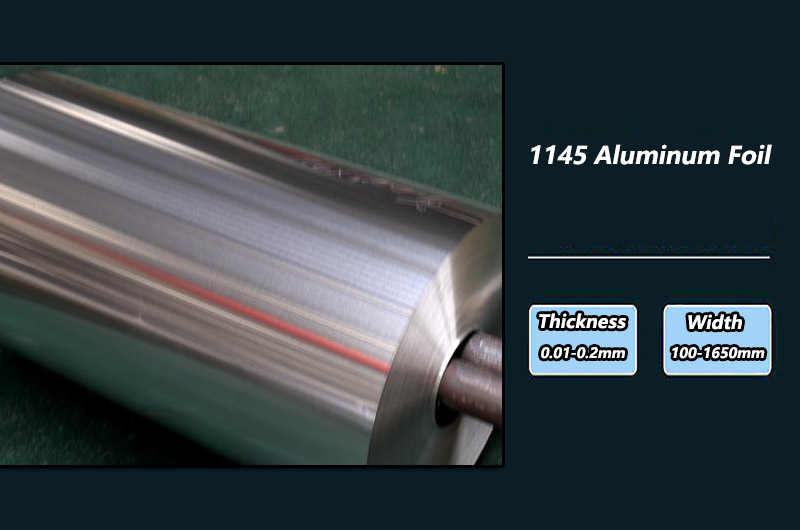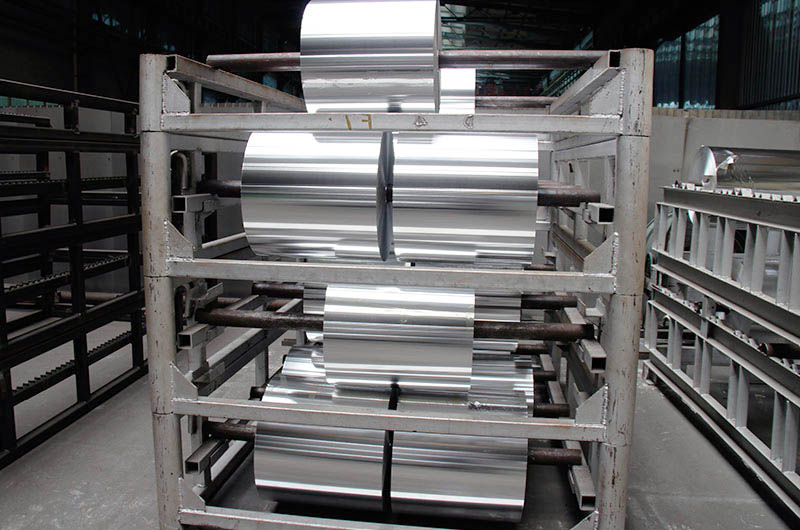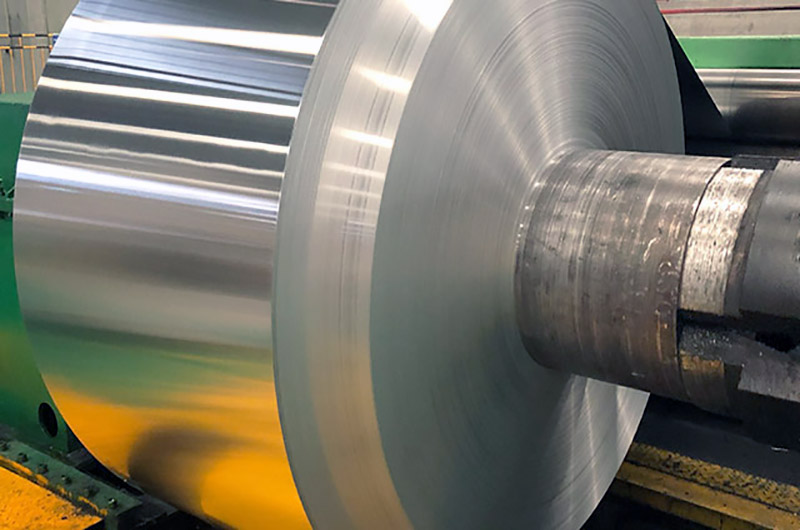- 1145 Aluminum Foil Composition and Properties
- Specification of 1145 Aluminum Foil
- 1145 Aluminum Foil Advantages
- 1145 Aluminum Foil Mechanical Properties
- 1145 Aluminum Foil Technical Parameters
- 1145 Aluminum Foil Applications
- 1145 Aluminum Foil Manufacturing Process
- People also Asks about 1145 Aluminum Foil
Aluminum foil, a staple in various industries, boasts a multitude of alloys tailored for specific applications. Among these, the 1145 aluminum foil stands out for its unique composition and properties.

1145 Aluminum Foil Composition and Properties
1145 Aluminum Foil Chemical Composition
The 1145 aluminum foil is an alloy primarily composed of aluminum, with a minimum purity of 99.45%. This high purity level ensures excellent electrical conductivity and corrosion resistance.
- Aluminum (Al): 99.45% min
- Iron (Fe): 0.55% max
- Silicon (Si): 0.50% max
- Copper (Cu): 0.05% max
- Manganese (Mn): 0.05% max
- Others: 0.05% max (each), 0.15% max (total)
1145 Aluminum Foil Physical Properties
- Lightweight: As with other aluminum alloys, 1145 foil is exceptionally lightweight, making it easy to handle and transport.
- Ductility: The foil exhibits high ductility, allowing it to be easily formed and shaped for various applications.
- Corrosion Resistance: Its high purity contributes to superior corrosion resistance, making it suitable for applications in challenging environments.
Specification of 1145 Aluminum Foil
Alloy Type: 1145 Aluminum Foil
Temper: O (Annealed)
Thickness: Typically ranging from 0.01mm to 0.2mm, with variations based on specific requirements.
Width: Customizable based on application needs, commonly available in widths ranging from 100mm to 1650mm.
Surface Finish: Both sides of the foil are generally free from oil, stains, and other contaminants. The surface is smooth and reflective.
Tolerance: Thickness and width tolerances are specified according to international standards or customer requirements.
Core Material: Aluminum or steel, depending on the supplier and customer specifications.
Inner Diameter of Core: Commonly 76mm or 152mm (3 inches or 6 inches), but can be customized.
Packing: Typically packed in wooden cases or as per customer requirements to ensure safe transportation.

1145 Aluminum Foil Advantages
1. High Purity
With a minimum aluminum content of 99.45%, 1145 aluminum foil offers high purity, ensuring optimal performance in electrical and corrosion-resistant applications.
2. Lightweight and Ductile
The foil's lightweight nature and high ductility make it easy to work with, facilitating its use in a variety of applications.
3. Corrosion Resistance
Its resistance to corrosion ensures durability and longevity in challenging environments, making it a reliable choice for diverse industries.
1145 aluminum foil stands as a testament to the versatility and adaptability of aluminum alloys. Its high purity, coupled with lightweight and corrosion-resistant properties, makes it an invaluable material in the electrical, insulation, packaging, and heat exchange industries.
As technology and industry continue to advance, the role of 1145 aluminum foil is likely to expand, contributing to enhanced efficiency and innovation across various sectors.
1145 Aluminum Foil Mechanical Properties
Tensile Strength
Varies with thickness and temper, but typically ranges around 60 MPa (annealed condition).
Yield Strength
The yield strength of 1145 aluminum foil is generally low due to its soft annealed condition.
Elongation
Varies with thickness and temper, but typically around 25% (annealed condition).
Hardness
The alloy is in an annealed state, so it is soft, and hardness values are typically low.
1145 Aluminum Foil Technical Parameters
- Density: Approximately 2.70 g/cm³
- Melting Point: Approximately 660.3°C
- Electrical Conductivity: High electrical conductivity due to its high purity (minimum 99.45% aluminum).
- Thermal Conductivity: Aluminum generally has good thermal conductivity, contributing to its suitability for heat exchange applications.
1145 Aluminum Foil Applications
1145 Aluminum Foil for Electrical Industry
Due to its high purity and excellent electrical conductivity, 1145 aluminum foil is extensively used in the electrical industry for capacitors, transformers, and other electronic components.
Specifications and Thickness:
Thickness: The thickness of 1145 aluminum foil used in the electrical industry can vary based on the specific application. However, for capacitors and transformers, foils with a thickness ranging from 0.02mm to 0.1mm are common.
Coating Requirement:
In some cases, coatings may be applied to enhance specific properties like conductivity or to provide insulation. For example, a thin layer of oxide coating may be applied to improve the foil's surface characteristics.
Specific Application Examples:
1145 Capacitors Aluminum Foil: 1145 aluminum foil is used as the electrode material in the capacitor, where its high purity and conductivity contribute to the capacitor's performance.
1145 Transformers Aluminum Foil: In transformers, 1145 foil can be used as winding material due to its excellent electrical properties.

1145 Insulation Aluminum Foil
The foil finds applications in thermal insulation, where its lightweight and reflective properties contribute to energy efficiency in buildings and industrial settings.
Specifications and Thickness:
Thickness: In thermal insulation applications, thinner foils with a range of 0.01mm to 0.05mm may be employed to provide a reflective barrier while maintaining flexibility.
Coating Requirement:
Coating may not be necessary for basic insulation purposes. However, coatings like polyester may be applied for additional protection or to meet specific performance requirements.
Specific Application Examples:
1145 Building Insulation Aluminum Foil: 1145 aluminum foil can be used in radiant barrier systems for insulation in walls, roofs, and floors, reflecting radiant heat and contributing to energy efficiency.
1145 Packaging Aluminum Foil
Owing to its malleability and corrosion resistance, 1145 foil is used in packaging for food, pharmaceuticals, and other consumer goods.
Specifications and Thickness:
Thickness: For packaging applications, 1145 aluminum foil with a thickness ranging from 0.012mm to 0.05mm is commonly used.
Coating Requirement:
Coating may not be required for standard packaging applications. However, coatings like lacquer or heat-seal coatings may be applied for specific packaging needs.
Specific Application Examples:
1145 Food Packaging Aluminum Foil: 1145 foil is utilized for packaging various food products, providing a barrier against moisture, gases, and light.
1145 Aluminum Foil for Heat Exchangers
The alloy's thermal conductivity makes it suitable for heat exchangers in various industries, contributing to efficient heat transfer.
Specifications and Thickness:
Thickness: The thickness of 1145 aluminum foil used in heat exchangers can vary but is typically in the range of 0.1mm to 0.2mm.
Coating Requirement:
Coating may not be necessary for standard heat exchanger applications. However, coatings like hydrophilic coatings may be applied for enhanced heat transfer efficiency.
Specific Application Examples:
1145 Air Conditioning Aluminum Foil: 1145 aluminum foil can be used in the fins of air conditioning heat exchangers, facilitating efficient heat transfer between the refrigerant and air.
1145 Aluminum Foil Manufacturing Process
1. Casting
The process begins with casting aluminum ingots, which are heated and transformed into rolling slabs.
2. Hot Rolling
The rolling slabs undergo hot rolling to form initial sheets of aluminum.
3. Cold Rolling
The hot-rolled sheets are further reduced in thickness through cold rolling, creating the desired foil thickness.
4. Annealing
The foil is subjected to an annealing process, a crucial step that enhances its flexibility and softness. This makes it more pliable for various applications.
People also Asks about 1145 Aluminum Foil
- What is the difference between aluminum 1100 and 1145?
- What is the composition of aluminum 1145?
- What is the highest thickness of aluminum foil?
- What grade of aluminum is aluminum foil?
